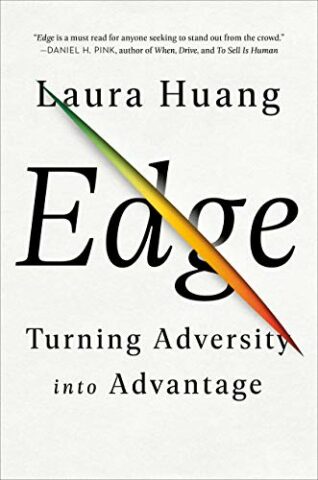Adapting in difficult times
Harvard professor Laura Huang explains how to flip the switch to turn disadvantage into success during troubled times, like our current Covid era. First of all, start by recognizing your greatest value — while managing your weaknesses.
Bar the odd exception, 2020 was a year when many businesses had to cope with numerous problems. Not only did they have to manage capital and revenue during a period of economic hardship, but they also had to adjust their business models to accommodate health guidelines and regulations, notes Huang, associate professor of business administration at Harvard University. And the hangover will certainly carry on into 2021.
Nevertheless, many companies that did not have a built-in digital advantage – in other words, companies that were not named Amazon, Zoom, or Slack – were still able to pivot, innovate, and reformulate to survive and even thrive during a difficult period. They were able to manage the market’s perception of their brand and their value proposition.
As Huang sees it, our adaptability in times of crisis depends not only on the quality of our ideas, references, skills, or efforts, but also on how we shape others’ perceptions – of our strengths, and our flaws. What might be seen as a weakness can be turned into an asset. To do this, she suggests four key principles to keep in mind, in good times and bad – what she calls EDGE (Enrich, Delight, Guide, Effort).

Edge: Turning Adversity into Advantage
Laura Huang (Portfolio, 2020)
Enrich: identify what distinguishes your value proposition
The first step is to identify your “basic goods” – the greatest value you have to offer – and what you can add to the basic offer in these troubled times. What makes you stand out from the crowd? What can you offer your customers during the pandemic recession? Your basic offer may not be that much different from normal. At the same time, don’t ignore your weaknesses, and the negative impact the health crisis may have had on your operations, resources, and employees, and customers’ perceptions of your business or service. Regulations such as social-distancing rules may also impose restrictions on your company.
So how can you keep an edge? Start from a mutual understanding of what your obstacles and goals are. This will help your team formulate a strategy for coping with the crisis period. It might be a new business model, rebranding, or changing communication styles, etc.
Spiffy, an American car-cleaning service, has expertise in sanitizing surfaces and upholstery. During the pandemic, they broadened to include an office and facilities cleaning and disinfecting service, partnering with another company to add clean air management to the offer.
© Copyright Business Digest - All rights reserved




